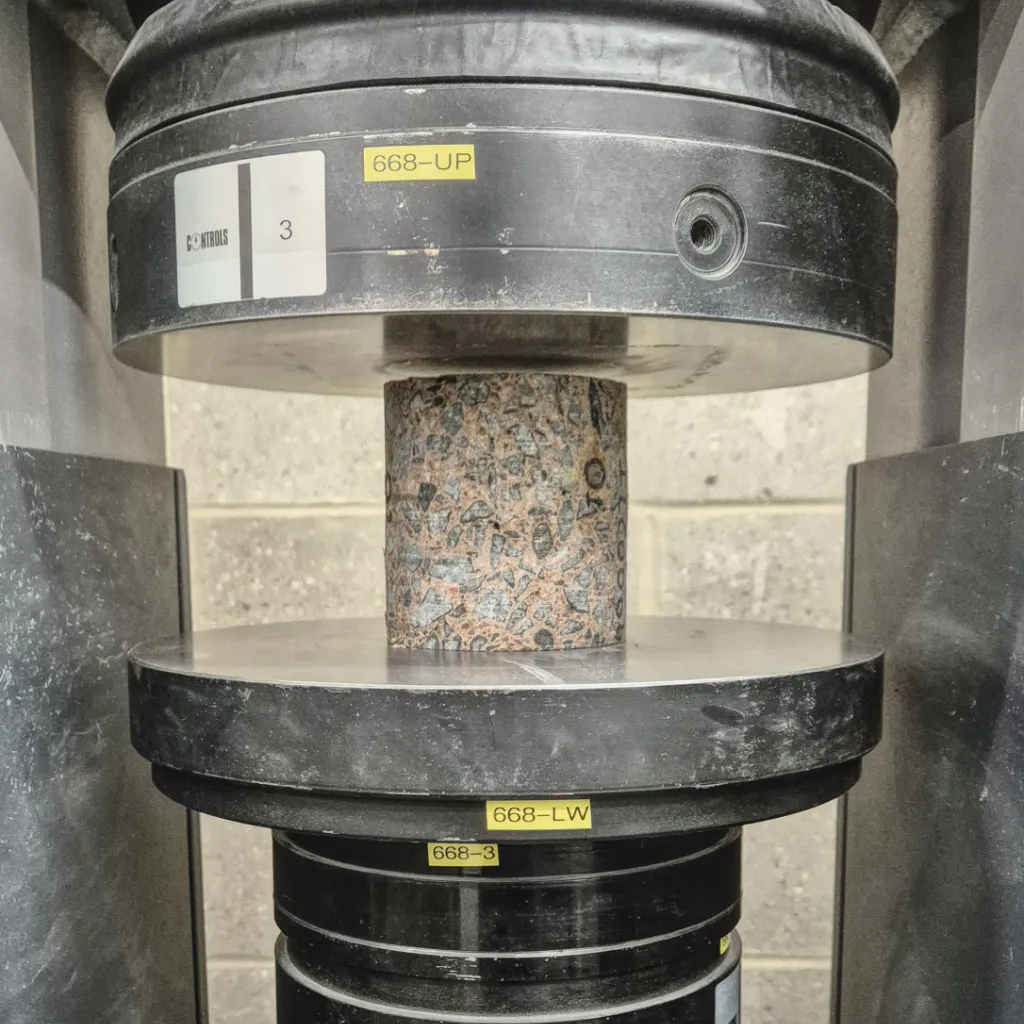
Assessing the compressive strength of concrete in an existing structure is essential when evaluating its ability to carry additional loads or after modifications. This is typically achieved through core sampling, which provides a representative measure of the concrete’s strength in different areas of the structure.
Our in-house consultancy offers expert guidance throughout the process, from sample recovery to final analysis. We provide support and detailed assessments, ensuring that the results are interpreted correctly for informed decision-making regarding structural integrity and load-bearing capacity.
Compressive strength testing of concrete cylinders provides critical insights into the structural performance of existing concrete, allowing for safe modifications and load assessments. With expert analysis and support, the testing ensures the continued reliability and safety of the structure.

AMTEST UK Ltd delivers top-tier services to civil engineering and infrastructure clients across the UK, backed by expert in-house concrete consultants.
Unit A 2D/6, Project Park, North Crescent, London E16 4TQ
Assessing the compressive strength of concrete in an existing structure is essential when evaluating its ability to carry additional loads or after modifications. This is typically achieved through core sampling, which provides a representative measure of the concrete's strength in different areas of the structure.
Our in-house consultancy offers expert guidance throughout the process, from sample recovery to final analysis. We provide support and detailed assessments, ensuring that the results are interpreted correctly for informed decision-making regarding structural integrity and load-bearing capacity.
Compressive strength testing of concrete cylinders provides critical insights into the structural performance of existing concrete, allowing for safe modifications and load assessments. With expert analysis and support, the testing ensures the continued reliability and safety of the structure.